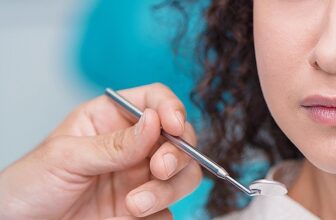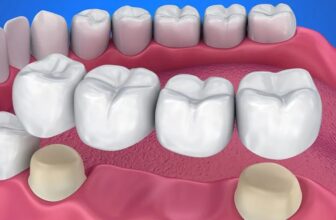
Root canal treatment is often associated with pain relief and saving a damaged or infected tooth. However, one frequently overlooked aspect is how the procedure impacts your eating habits. Whether the temporary discomfort, sensitivity, or dietary restrictions follow the treatment, your eating habits may require adjustments, especially during recovery. This blog will explore how root canal treatment affects what and how you eat, providing simple, practical advice to ensure a smooth recovery.
1. Understanding Root Canal Treatment
Before diving into the effects of eating, it’s essential to understand what a root canal treatment involves. A root canal removes infected or damaged tissue inside the tooth, including the pulp and nerves. Once the infected area is cleaned, the tooth is sealed and often topped with a crown for protection. While this treatment helps relieve pain and save your tooth, it is also temporarily vulnerable as it heals, which can influence your eating habits.
2. Immediate Post-Treatment Eating Guidelines
Once the root canal procedure is complete, the first 24-48 hours are critical for healing. During this period, your eating habits will be most affected.
- a) Stick to Soft Foods Immediately after the procedure, it’s best to stick to soft foods that don’t require much chewing. This helps minimize pressure on the treated tooth and prevents irritation. Some ideal options include:
- Mashed potatoes
- Smooth soups (avoid hot temperatures)
- Applesauce
- Yogurt
- Scrambled eggs
- Smoothies (avoid seeds or hard fruits)
- b) Avoid Chewing on the Treated Side It’s a good idea to avoid chewing on the side of the mouth where the root canal was performed. This precaution reduces the risk of damaging temporary fillings or aggravating the sensitive area.
- c) Monitor Sensitivity: You may experience some sensitivity to temperature and pressure. For this reason, it’s advisable to avoid very hot or cold foods and drinks immediately after the procedure. Room-temperature foods are best to avoid triggering discomfort.
- d) Avoid Hard, Crunchy, or Sticky Foods. Hard, crunchy, or sticky foods can strain the treated tooth unnecessarily, possibly damaging it. For example, avoid nuts, chips, hard candy, or chewing gum. These foods could also stick to or pull at any temporary fillings or crowns.
3. Short-Term Diet Adjustments During Healing
As you move from the immediate recovery phase to the days following your root canal, you will gradually reintroduce a broader range of foods into your diet. However, your eating habits will still require some caution.
- a) Choose Nutrient-Dense, Easy-to-Eat Foods. During recovery, consuming nutrient-dense foods to support the healing process is important. Focus on foods rich in vitamins, minerals, and proteins while being easy to chew and swallow. Some examples include:
- Soft vegetables like steamed carrots or spinach
- Lean proteins like chicken, fish, or tofu (well-cooked and tender)
- Cooked grains such as rice, quinoa, or oatmeal
- Smooth peanut butter or avocado
- b) Hydration Matters Staying hydrated is always important for oral health, especially during recovery. Water is the best choice for hydration, as it helps keep the mouth clean and aids in the healing process. Avoid sugary or acidic drinks, such as soda or citrus juices, as they can contribute to sensitivity or cause irritation in the treated area.
4. Long-Term Dietary Considerations
Once your tooth has fully healed and you’ve received a permanent crown or filling, you can return to a more normal diet. However, there are still some long-term dietary considerations to consider after root canal treatment.
- a) Protecting Your Restored Tooth A tooth that has undergone a root canal is more fragile than a healthy tooth, even with a crown or filling. This means that certain eating habits may need to be adjusted permanently. Avoid excessively hard or sticky foods that could damage the restoration, such as:
- Hard candies
- Ice (chewing ice can crack the crown)
- Tough meats or foods that require excessive chewing
- b) Maintaining a Balanced Diet for Oral Health: A balanced diet is essential for maintaining strong teeth and gums. Foods rich in calcium, vitamins, and antioxidants will help keep your mouth healthy and prevent future dental issues. Some excellent foods for oral health include:
- Leafy greens (high in calcium and folic acid)
- Dairy products like milk, cheese, and yogurt (excellent sources of calcium)
- Fruits and vegetables that promote saliva production, such as apples and celery
- Whole grains, which are rich in fiber and support overall health
- c) Avoiding Sugary and Acidic Foods Sugary foods can lead to plaque buildup, which increases the risk of cavities and gum disease, even in a tooth with a root canal. Acidic foods and drinks like soda, citrus fruits, and wine can also wear down the enamel and irritate your gums. Limit your intake of these foods to protect your oral health.
5. Tips for Managing Your Diet During Recovery
Managing your diet during and after a root canal treatment doesn’t have to be complicated. Here are some additional tips to make the process easier and more comfortable:
- a) Plan Ahead Before your root canal procedure, stock your kitchen with soft, easy-to-prepare foods. This way, you won’t have to worry about meal preparation when you may not feel up to it.
- b) Gradually Reintroduce Foods As your tooth heals, slowly reintroduce harder or more textured foods. Pay attention to how your tooth feels after eating, and avoid foods that cause discomfort.
- c) Follow Your Dentist’s Instructions: Your dentist will provide specific instructions for your post-treatment care, including dietary recommendations. Follow these guidelines closely to ensure a smooth recovery. concerned about tooth pain in bhopal? Don’t hesitate to contact a specialist for root canal treatment in Bhopal. Smile Gallery Our team will help you restore your dental health.
- d) Monitor for Complications If you experience persistent pain, swelling, or sensitivity after your root canal, consult your dentist. These could be signs of complications that need to be addressed.
6. Conclusion: Returning to Normal Eating Habits
Root canal treatment is an important procedure that saves your tooth and restores your oral health, but it requires some temporary changes to your eating habits. You can ensure a smooth recovery by sticking to soft foods immediately after the treatment, avoiding hard and sticky items, and following your dentist’s recommendations.
As you heal, you can gradually return to your normal diet while being mindful of protecting your restored tooth. Maintaining a healthy, balanced diet is essential for long-term oral health, and knowing how root canal treatment impacts your eating habits can help you avoid complications and enjoy a successful recovery.
If you ever have concerns about what you should or shouldn’t eat after a root canal, don’t hesitate to consult your dentist for personalized advice.







